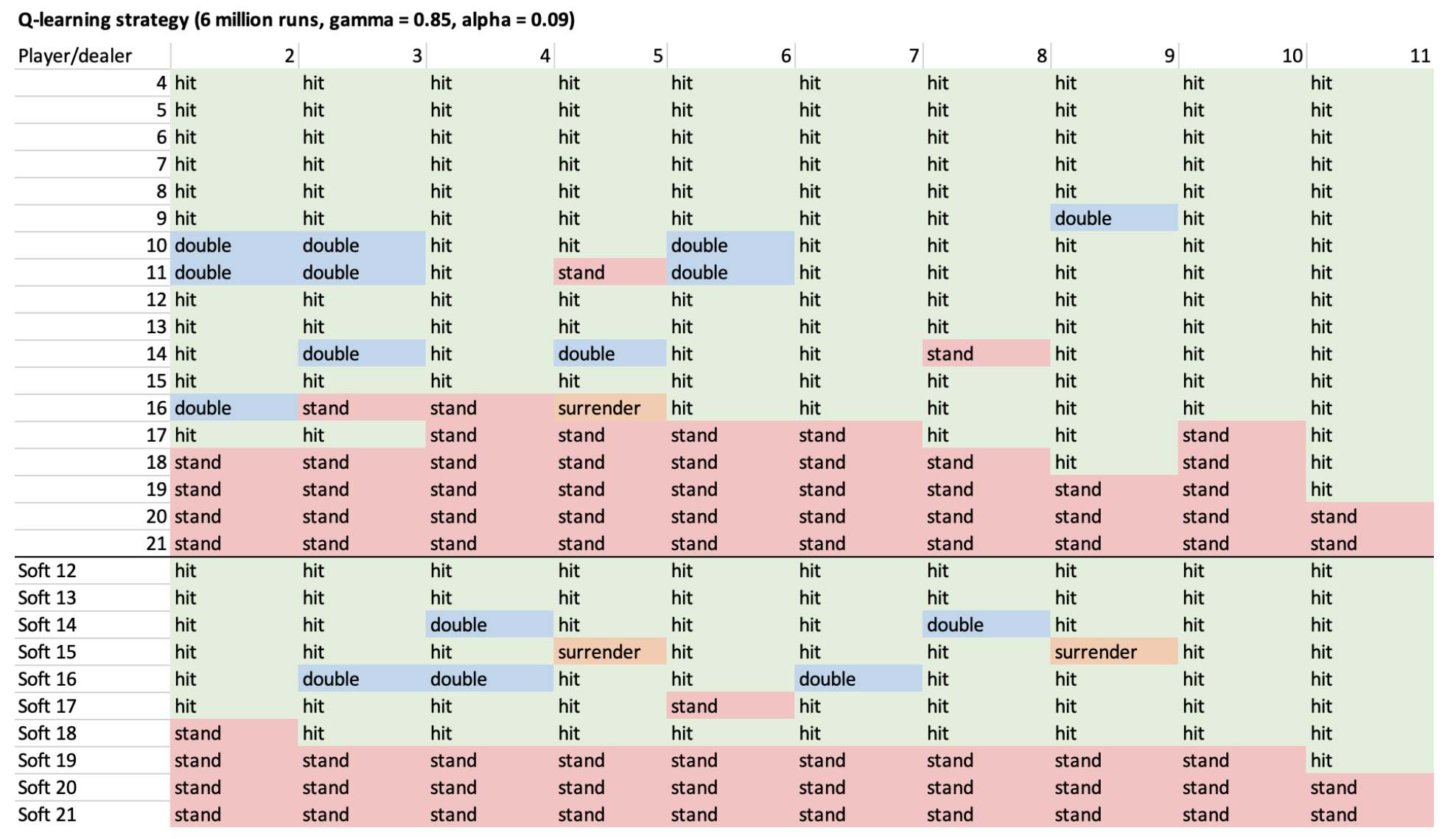
Blackjack
Blackjack is a popular casino game, in which the objective is to get a better hand than the dealer without busting. The goal of this project was to investigate and compare two different Reinforcement learning techniques for approximating the optimal strategy. Determining this strategy isn't trivial, due to Blackjacks' stochastic nature. Reinforcement learning approaches have proven to be very effective in stochastic environments, and especially in Blackjack, as they can exploit the games' inherent reward structure. This was the final project in the course "Autonomous and Adaptive Systems" at the University of Bologna, and explored using Q-learning and Deep Q-learning for approximating the optimal strategy.
I wrote a report summarizing the project, which can be found in the Github repository if you're interested in further reading and seeing the results. The project was implemented using python and Keras.